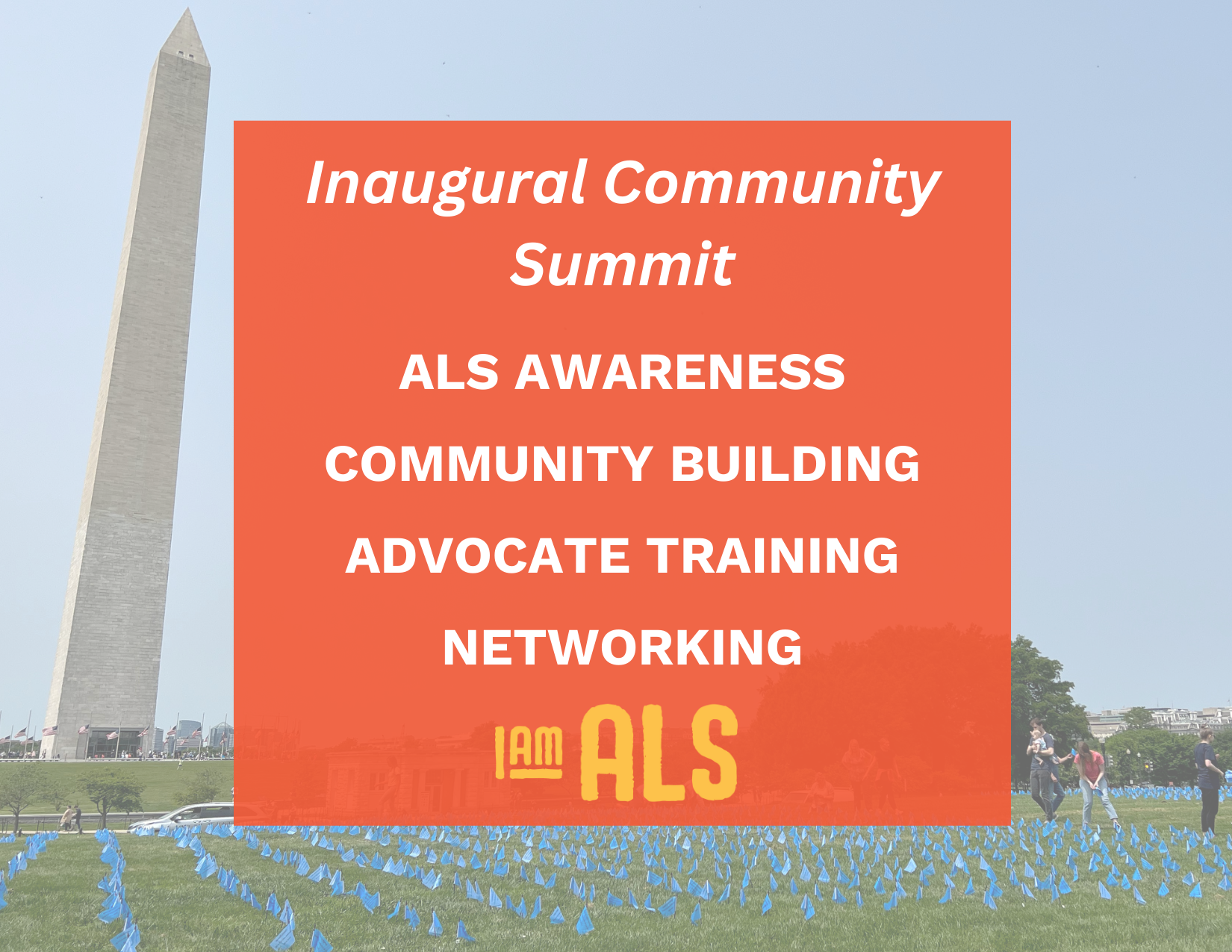Advanced Care Planning for ALS

Preparing for the future
Getting an ALS diagnosis is hard. That’s an understatement. There are so many thoughts going through your mind as you try to digest this news. When you’re ready, there are several steps you can take to prepare yourself and your loved ones financially. These topics can be difficult to wrap your head around, let alone discuss. This guide from The Conversation Project can help you prepare for this seemingly insurmountable discussion with your loved ones. Lean on your team for support, and consider working with a counselor.
Estate planning
Simply put, estate planning is the process of detailing what you’d like to happen to everything you own and other personal matters — including your car, furniture, bank accounts and personal valuables — if you’re incapacitated or you pass away. It’s a good way to ensure your wishes and values are honored and the people or things important to you are protected.
There are many elements of an estate plan, including:
- Advance directives
- Power of attorney
- Last will and testament
- Trusts
- Life insurance policies
- Guardianship designations for dependents
If you’re considering estate planning, it’s helpful to speak with an attorney for guidance and help preparing documents. For help finding a lawyer in your area, check out LegalMatch or consider using an online legal service such as LegalZoom or Rocket Lawyer. Resources may be available to help you cover the costs of an attorney for estate planning; contact the ALS Support Team for information and assistance.
Additionally, this planning for the future guide and webinar on Estate Planning for People with ALS and their Families may be helpful to review.
Advanced care planning
Advance directives
Advance directives are legal documents that tell your family and health care team which medical interventions you want in the event you cannot tell them directly due to illness or injury. There are two types of advance directives: living will and power of attorney, which are reviewed below. You may opt to have both types of advance directives, but if you choose to do so be sure that the wishes detailed in one do not conflict with the other. If you’re thinking about advance directives, Smile Inside is available to help people with ALS process this decision.
The ALS Association has more information on advance directives and end of life which you may find helpful.
Living will
A living will details the type of medical care you’d like to receive, including your preference on the use of interventions such as feeding tubes and mechanical ventilation. This would be in the event that you’re no longer able to communicate your desires. These interventions are usually taken to help you live longer, and being explicit in your wishes through a living will lets others know what your goals are for care and the kind of care you’d like to receive.
Power of attorney
Some people choose to appoint a power of attorney to help manage finances or medical care as ALS progresses. Here you would choose a person to legally act on your behalf. It should be someone you trust to make decisions based on your values and in your best interest, whether acting on your instructions or their own judgment. This guide from The Conversation Project on how to choose a health care proxy may be helpful in guiding your decision. A power of attorney helps ensure the people you trust to act on your behalf will have the ability to do so. Without these documents, your loved ones may need to seek court approval. A power of attorney can be created with or without a lawyer; however, seeking legal advice helps ensure it will serve its intended purpose.
There are different types of powers of attorney depending on your needs. For example, a general power of attorney allows someone to make broad decisions, while a health care power of attorney allows someone to make medical decisions for you. A durable or springing power of attorney can be used to appoint someone to make medical decisions on your behalf in the event you’re unable to due to physical or mental incapacity. Through these documents, you’re granting someone the power to carry out your wishes and/or make decisions that are in your best interest. Learn more about the different types of powers of attorney here. It’s important to remember that all types of powers of attorney are only valid while the person being represented is living, and do not constitute a last will and testament.
Do not resuscitate (DNR) order
A DNR is a document which states that you do not want to be resuscitated in the event your heart stops or if you stop breathing. It is a way to let health care workers and emergency responders know they should not intervene with CPR or other life-sustaining treatments if an emergency situation arises. Without this order, medical staff are duty-bound to try reviving you.
Note that there are two types of DNRs that you may sign: an in-hospital DNR and an out-of-hospital (OOH) DNR. An in-hospital DNR is one that is signed during an inpatient hospital stay. This order remains in your patient chart and is respected by personnel in that particular hospital. A new DNR is required for each hospital admission, including transfers between facilities. An OOH DNR, on the other hand, stays with you where you are, whether at home, in an assisted living center or while traveling. This version of the order is state-specific and will need to be re-signed if you move across state lines. If you’re traveling across state lines, be sure to bring your DNR with you. It’s reviewed by paramedics or other emergency responders outside of the hospital setting so that they can best fulfill your wishes in the event of an emergency. Medical ID bracelets and necklaces with your OOH DNR information also may be an option to ensure that your DNR is seen by responders. Check here for a state directory of DNR requirements. Signing a DNR is a very personal decision and is not required. Talk with your care team if you have additional questions or concerns about what signing a DNR would mean for you.
Considering your values when completing a DNR is important but also can evoke difficult emotions. Know that there are people you can speak with to help you process these emotions and walk you through your thought processes on important end-of-life decisions. Smile Inside provides free counseling services to those with ALS and their families, including assistance with planning for end of life. BetterHelp and Talkspace are additional online counseling services and even offer live sessions in order to help you process your thoughts and desires.
Life insurance
Upon diagnosis with ALS, it’s important to review any life insurance policies you may have. If you don’t currently have life insurance, it’s important to consider whether or not creating one is right for you. Life insurance is a way for you to help your loved ones financially in the case of your death. Even if no one depends on your income, the money can help pay for other expenses, such as end-of-life costs. In exchange for your premium payments, the insurance company will pay your beneficiaries a lump sum if you are no longer here. There are many types of life insurance policies out there, so it’s important that you consider your options in order to determine which plan best meets your needs and the needs of those you love. Consider reading the ALS Association’s guide on knowing your rights when it comes to life insurance.
Honoring life
Organ or tissue donation
While there are currently no cures for ALS, there is immense research being conducted to find treatments and cures. Providing researchers with tissue and organs can help them better understand ALS and, therefore, develop better ways to diagnose and treat it. Although it can be a difficult subject to talk about, organ and tissue donation for research is one way that you can continue to contribute to increased understanding of ALS and disease progression. It could enable study of tissue from the brain and spinal cord that cannot otherwise be done in a living person, helping to pave the way for discovery of therapies in the fight against ALS. Donating tissue is a deeply personal decision. Talk with your care team about donating to help you decide whether or not this option is right for you.
The ALS Association has a list of facilities that are accepting brain and spinal cord tissue for ALS research. Furthermore, the CReATe Consortium and NIH NeuroBioBank have collaborated to provide an opportunity to cover the costs of post-mortem brain and spinal cord tissue donation from participants involved in CReATe studies.
Planning funerals and celebrations of life
Thinking about how you’d like yourself or your loved one to be laid to rest can feel unsettling, especially when you’re focused on living. While understandable, having these discussions also can offer peace of mind that you or your loved one’s wishes will be honored. For families and friends, a plan can help lessen the stress of organizing a funeral or other celebration of life so they may focus on remembrance and saying goodbye.
Some people may prefer to work out the details in advance; however, others may feel more comfortable not going into the specifics. Wherever you land, there are a few topics that are especially helpful to explore in advance, such as burial options, budget and memorial service options. Consider reading AARP’s 8 Tips for Funeral Planning for practical information to help you make informed decisions. Keep in mind, grants may be available for people with ALS to assist with funeral expenses. For help locating programs, please contact the ALS Support Team at 1-866-942-6257 or by submitting an online request support form.
You might find these helpful:

We're here to help with the challenges of ALS
Connect with an ALS Support Specialist today
Have questions? Call us at 866.942.6257 between 9 a.m. - 5 p.m. or email us
